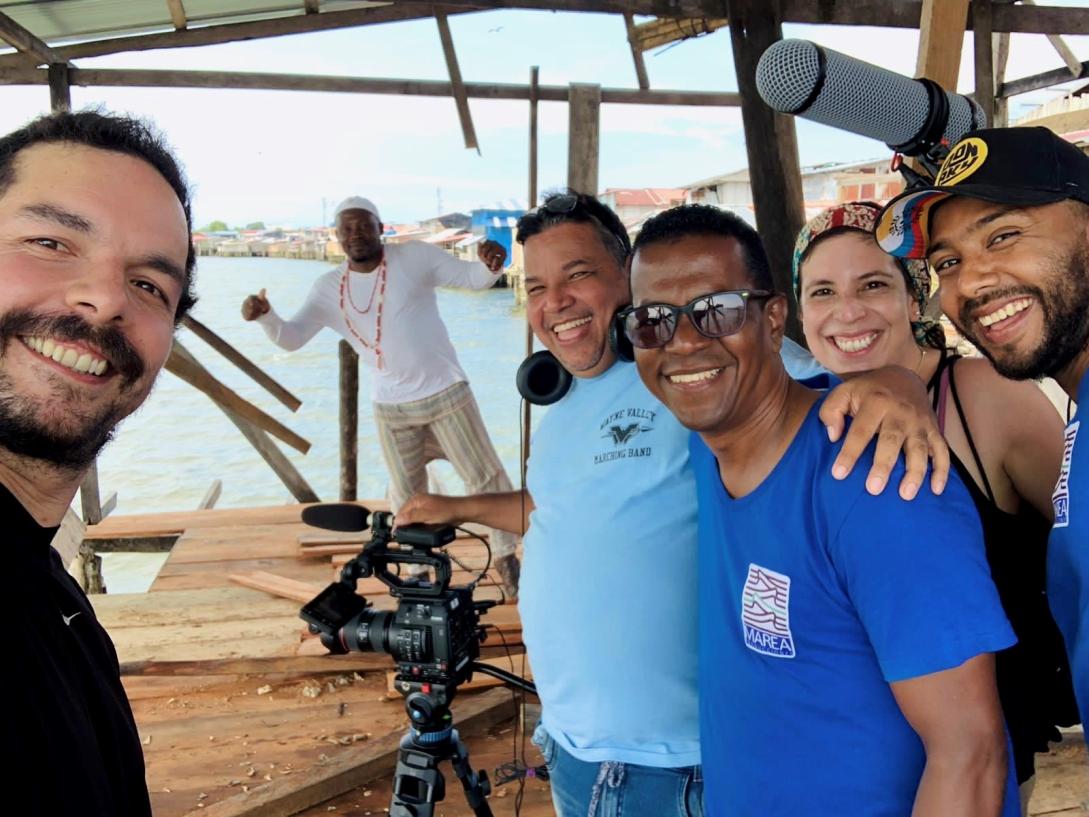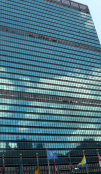Community cinema: an EU-LAC initiative goes on to involve Asia and Africa

Paola Díaz is a young Colombian film director, one of the two to take part in last year’s San Sebastián Film Festival, thanks to an initiative run by Cineuropa and funded by the European Commission, as part of the EULAC Cinema.
From among 120 applicants, only two participants were chosen for this initiative in the most active international film festival in the audio-visual cooperation between Europe and Latin America and Caribbean. They had the chance to pitch their propositions in the realm of indigenous and community cinema. Now, months after her participation, Paola reflects with EU partner Cineuropa on the experience, what she learned and the impact that this programme has had on her professional career.
Thanks to [the exchange in San Sebastian] we’ve been able to find partners for the distribution of the documentary series Somos historias […] We are [also] very excited about being able to organise the second edition of our Sur a Sur International Community Cinema Festival [abroad], in Dhaka (Bangladesh) and in the Kakuma refugee camp (Kenya).
Paola Díaz
Cineuropa: What was the experience of taking part in San Sebastián like?
Paola Díaz: As a co-director of the Historias en Kilómetros lab – which focuses on training activities, and the production and circulation of community cinema in places where there is no access to traditional film schools and where there’s a high incidence of social unrest – it was very enriching to have the chance to converse with different distributors and producers interested in knowing more about the voices in these communities. Another enriching aspect was joining forces with them to look for exhibition solutions for this initiative seeking to build peace and memory in countries that are still afflicted by war.
What learnings or impressions would you single out from this opportunity, and how did it influence your perspective on indigenous film?
Thanks to this opportunity, we were able to talk to different filmmakers about the project we have in development, the documentary Sur a sur, which builds a bridge of “community cinema” between Africa, Asia and Latin America. It enabled us to get to know possible different avenues for its development, which undoubtedly fuels the possibility for regions and communities without exhibition spaces to be granted greater visibility, and thus their voices and their stories can be given a meaningful platform. This feature brings together five communities of community filmmakers from these three continents, in order to tell one single story of cultural and peaceful resistance. We will be able to see what unites them, while at the same time enjoying their landscapes, cuisine, struggles, and the richness and diversity of their cultures.
Have you already seen any specific results or advancements since you took part in this EULAC Cinema initiative? Could you share any examples of how this initiative has had an impact on the development or visibility of your projects?
Thanks to this experience, we’ve been able to find partners for the distribution of the documentary series Somos historias, which arose after the peace process between the Colombian government and the FARC-EP guerrillas. The series explores different territories and topics in the country, such as the peace signatories and their return to civilian life; people who grew up in the midst of war who are now working to help the new generations; the struggle of stigmatised young artists; farmers fighting for their right to the land; examples of reconciliation between peace signatories and victims of the conflict; and, finally, the importance of the ancestral wisdom and tradition of indigenous and Afro-Colombian peoples. Somos historias is the journey of seven communities that, through cinema, dignify the memory of their peoples, seek the truth and justice, and strive to avoid repeating the past. The circulation of this series is not just a step forward in the strengthening of community cinema, but also means the film industry is opening up to new forms and spaces of co-creation that contribute to life, dignity and peace.
What are your plans when it comes to continuing to develop your projects now, after this experience?
We are very excited about being able to organise the second edition of our Sur a Sur International Community Cinema Festival (FICC-HEK SURaSUR), a celebration of the transformative power of community cinema on an international level. It will be a travelling festival hosted in turn by seven places around the world: five in Colombia (Tierra Grata, Cesar; Cereté, Córdoba; Tumaco, Nariño; Ibagué, Tolima; and Norte de Santander), and internationally by Dhaka (Bangladesh) and by the Kakuma refugee camp (Kenya). The hosts of each “stop” on the route are professional community filmmakers educated at the Historias en Kilómetros training lab. At this festival, there will be screenings of films focused on peacebuilding initiatives, cultural and non-violent resistance, and the defence and protection of the territory and its biodiversity. In addition, it will boast discussion groups, cultural spaces, and workshops for children and young people. Each one of these activities promotes the defence, continuity and protection of the physical, cultural and spiritual territory; solidarity and bonding between the peoples of the Global South; and community filmmakers as political subjects and promoters of peace and intercultural dialogue between Europa, Asia, Africa and Latin America.





